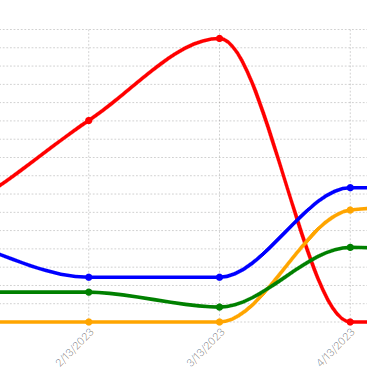Navigating the Future of the Client Experience in Financial Services
Local Memo: Google Generates $700 Billion Per Year in U.S. Economic Activity

Local Memo: Google Generates $700 Billion Per Year in U.S. Economic Activity
In this week’s update, learn about Google’s impact on the U.S. economy; Twitter’s new rules for advertisers; more AI news from Google; how the March Core Update impacted local search; top reasons for GBP suspension; and a new Instagram policy permitting five links in profiles.Google Generates $700 Billion Per Year in U.S. Economic Activity
Google has published the latest in its annual series of economic impact reports, purporting to measure the company’s influence on the U.S. economy. The report, covering activities in 2022, finds that Google services like Search, Cloud, YouTube, and Play have helped to generate more than $700 billion in economic activity for businesses, nonprofits, creators, and developers. The report includes small business success stories such as that of Sola Ajao, proprietor of an African grocery store in New York, who says 85% of her phone traffic comes from her Google Business Profile, and Charlotte Groce, owner of Palmetto Outdoor Spaces in South Carolina, who says 80% of her leads come from GBP. Greg Sterling notes that this year’s report may indicate a downturn, however, in the number of businesses who utilize GBP. This year’s report states that “over 18 million” U.S. businesses “used Google’s free tools to receive phone calls, bookings, reviews, requests for directions and other direct connections to their customers,” a number that, as Sterling points out, is about 1.5 million lower than in last year’s report. He speculates that the declining number may have to do with spam cleanup, or may indicate that Google is nearing saturation of its addressable market.Twitter Says All Advertisers Must Be Verified
Twitter has announced a new policy whereby all advertisers on the platform must also be paid subscribers – either Twitter Blue subscribers or businesses who have signed up for the new Verification for Organizations subscription. Brands who spend at least $1,000 per month in advertising will get the gold organization badge for free and will not have to pay extra to subscribe. All others must choose between Twitter Blue at $8 per month or Verification for Organizations at $1,000. The move comes in the wake of comments from Elon Musk indicating that Twitter has already lost 50% of its advertisers since last fall. Microsoft recently announced that its Smart Campaigns digital ads tool would no longer support Twitter ads.More AI News from Google
Google has made several moves on the AI front in recent days, including:- The addition of coding capabilities to Google’s Bard chatbot. According to reports, Bard can now write, debug, and explain code in more than 20 languages.
- Generative AI for Google Ads. Google’s Performance Max ad campaigns will soon include the option to use generative AI for content, according to a report from Financial Times. Advertisers will supply ad collateral such as images, text, and video, which AI tools will then “remix” to suit different audiences.
- The new Google DeepMind. DeepMind, an AI research entity that was previously among the Alphabet group of companies, is now a part of Google, combining with the Google Brain team which was formerly part of Google Research division. Google DeepMind’s mission is to accelerate Google’s progress in AI.
How the March Core Update Affected Local Search
Google has apparently increased the importance of primary category as a local search ranking factor, according to analysis from Yan Gilbert at Sterling Sky. The modification came as part of the March Core Update and affected a segment of local businesses starting around March 29. Gilbert speculates as well that Google has increased the breadth of similar terms that can be seen as a match to the primary category, such as “computer store” matching to a search for “electronics.” Businesses that previously struggled to rank highly are now performing better for searches related to their primary category, whereas larger businesses that list several categories have lost rank for searches related to their secondary categories.
In this chart from Yan Gilbert, a large department store (red line) sees rankings for secondary categories drop, while smaller businesses listing the same category as primary see a boost
Top Reasons for GBP Suspension
In a helpful article on Search Engine Land, Sheri Bonelli lists five common reasons why a GBP listing might get suspended by Google. These are:- Address violations such as P.O. boxes or virtual offices
- Making changes to core information such as business name, phone number, or category
- Keyword stuffing in business name
- Two businesses at the same address or phone number
- A report from a Google user
Instagram Now Allowing Up to Five Profile Links
Instagram will now allow users to post up to five links in the bio section of their profiles, a change recently announced by Mark Zuckerberg, who called it “probably one of the most requested features we’ve had.” All users, including businesses and creators, should now have access to this feature, which can be utilized by visiting the “Edit profile” interface and selecting “Add external link.” Users may share links to their website, third-party sites, and other social platforms. Links open within the Instagram app rather than launching a separate browser view.Subscribe to Local Memo!
Signup to receive Local memo updates and the latest on localized marketing, delivered weekly to your inbox.







